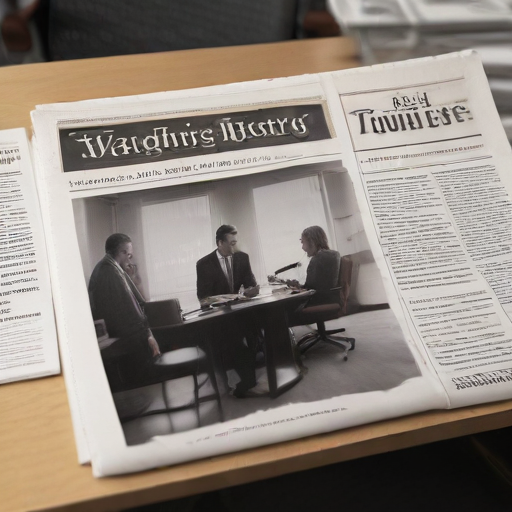Conservative radio personality Hugh Hewitt has officially resigned from his role as a contributing columnist at The Washington Post after a heated disagreement during the newspaper’s live show, “First Look.” The incident unfolded during a discussion about former President Donald Trump’s legal actions concerning elections in critical states.
During the segment hosted by Jonathan Capehart, Hewitt and fellow columnist Ruth Marcus were engaged in a debate. Capehart raised a question regarding Trump’s claims of electoral cheating in Pennsylvania, leading Marcus to assert that Trump believes no election can be fair unless he emerges victorious. Hewitt then interjected to clarify that a recent court ruling supported Trump’s campaign’s stance, emphasizing the need to report the entire context of the situation.
Conflicting views escalated when Capehart countered Hewitt’s point, prompting him to express his discontent and ultimately walk off the set, stating that he would not return. After leaving the show, Hewitt confirmed his resignation from The Washington Post, explaining that he had only contributed a column approximately every six weeks.
The Post has not directly commented on his resignation but acknowledged the platform’s commitment to dynamic discussions on pressing issues. Hewitt has been recognized as one of the few conservative voices within the Post’s primarily left-leaning Opinion section since he joined in 2017. His recent writings have included calls for Trump’s MAGA movement to adapt under a potential second Trump administration.
Hewitt’s resignation follows a turbulent period for The Washington Post, which has seen several editorial board members resign in protest of owner Jeff Bezos’ refusal to endorse a presidential candidate, leading to significant subscriber cancellations.
This resignation highlights the ongoing tensions between differing political ideologies, particularly within media circles. As the political landscape evolves, it remains crucial for platforms like The Washington Post to maintain a diverse range of opinions to foster understanding among their readership. The situation serves as a reminder of the complexities journalists face in balancing truth, opinion, and the need for critical discourse in these challenging times.
Overall, while tensions may have led to individual resignations, they underscore a broader dialogue on the importance of having diverse viewpoints represented in media, fostering a more informed society.
